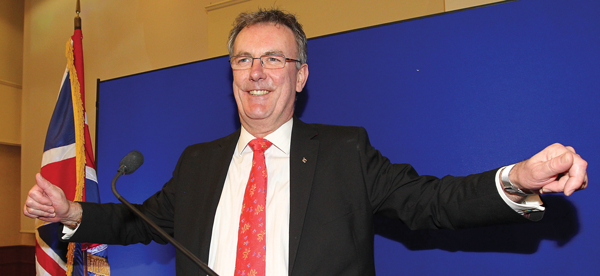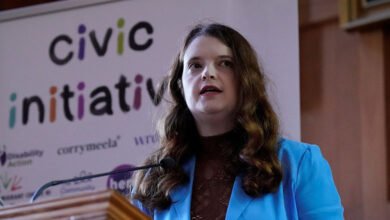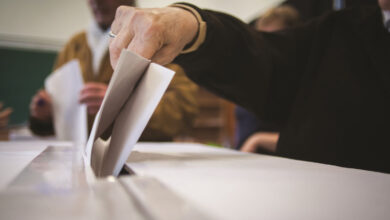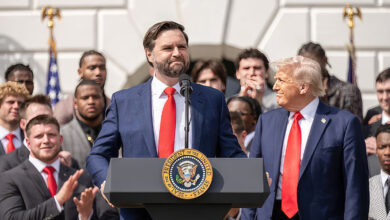UUP leadership election: Mike Nesbitt’s win
Peter Cheney assesses the UUP’s mood as it chooses its 15th leader.
Mike Nesbitt’s comprehensive victory as Ulster Unionist leader puts him in a strong position as he takes up the post, but he will be under pressure to take rapid action after years of decline.
Nesbitt enjoyed strong backing from the party establishment and the bulk of the key Fermanagh association. His 536 votes added up to a 80.6 per cent winning share.
One UUP source remarked that opposition has “very significant minority support” within the party. The difference between support for Basil McCrea (294) and John McCalllister (129) partly reflects the loss of liberal members under Tom Elliott since 2010.
Journalists regarded McCallister’s speech as by far the best, although delegates appeared to appreciate both and warmed to Nesbitt speaking without notes.
Tom Elliott was not media-savvy but is credited inside the party for reforming its structures e.g. allowing the party leader to appoint the chairman. Persuading the Conservatives to step aside at the Assembly election helped to save some ground. On his watch, the party made localised electoral gains across the south and west. Ultimately, he was unable to quell its chronic infighting, especially in the bitter and long-running dispute over David McNarry’s suspension.
The media narrative of the Ulster Unionist Party in a terminal spiral is not totally accurate. It fluctuates between 80,000 and 100,000 votes at election time (stable but hardly spectacular) and a 2,000-strong membership is good by local standards.
Lord Ken Maginnis maintained that “people liked the tone that Mike set” before claiming that McCallister wanted to turn the contest into a “competition”. A leadership election is exactly that but when challenged, he responded: “You go for the common cause.”
McCallister would differ. “I’d like to think I won most of the arguments but didn’t shift the opinions,” he told journalists afterwards. The party “had decided [on Nesbitt] a number of weeks ago” and he added: “I was direct on policy because I didn’t want anybody to be in any doubt as to where I stood.” While disappointed at the scale of his defeat, McCallister recognised that a decisive win was better for the sake of the party. An upbeat Danny Kennedy had “no regrets, none at all” for not standing.
Many delegates regretted that the election was happening at all and resented the plotters against Elliott. “Very sorry we lost a good man” was one’s reaction. There was widespread relief that the campaign was short and fairly good-natured.
Nesbitt’s critics claim that he lacks substance or consistency, although he is recognised as a good analyst on the Enterprise, Trade and Investment Committee. His party, in fairness, does have detailed policies but often fails to present them clearly.
In a brief interview with agendaNi, Mike Nesbitt said that the party had “voted to put the last 14 years to bed” when it had been “paying a price for bringing peace”. A truly shared future was his first priority and not achieving that would be a “crime.”
It was put to him that this was the Alliance Party’s objective. “So?” he replied. “We’ll have to put that proposition to them [the voters] but the first thing that we have to do is we have to look to ourselves, and we have to offer some more cohesion in terms of our membership and coherence in terms of the messages that we send.”
Asked about his admiration for Harold McCusker, David Trimble’s predecessor as Upper Bann MP, Nesbitt cited his values – “public service, loyalty, dedication” – and determination. He was “absolutely inspired” by McCusker’s Commons speech on the Anglo-Irish Agreement on 27 November 1986.
Organisationally, he wanted to “bring down the silos within the party” and make best use of its members: “You have skills and expertise and experience in every area of life that is impacted by government, and particularly the devolved government, and we just need to tap into that.”






